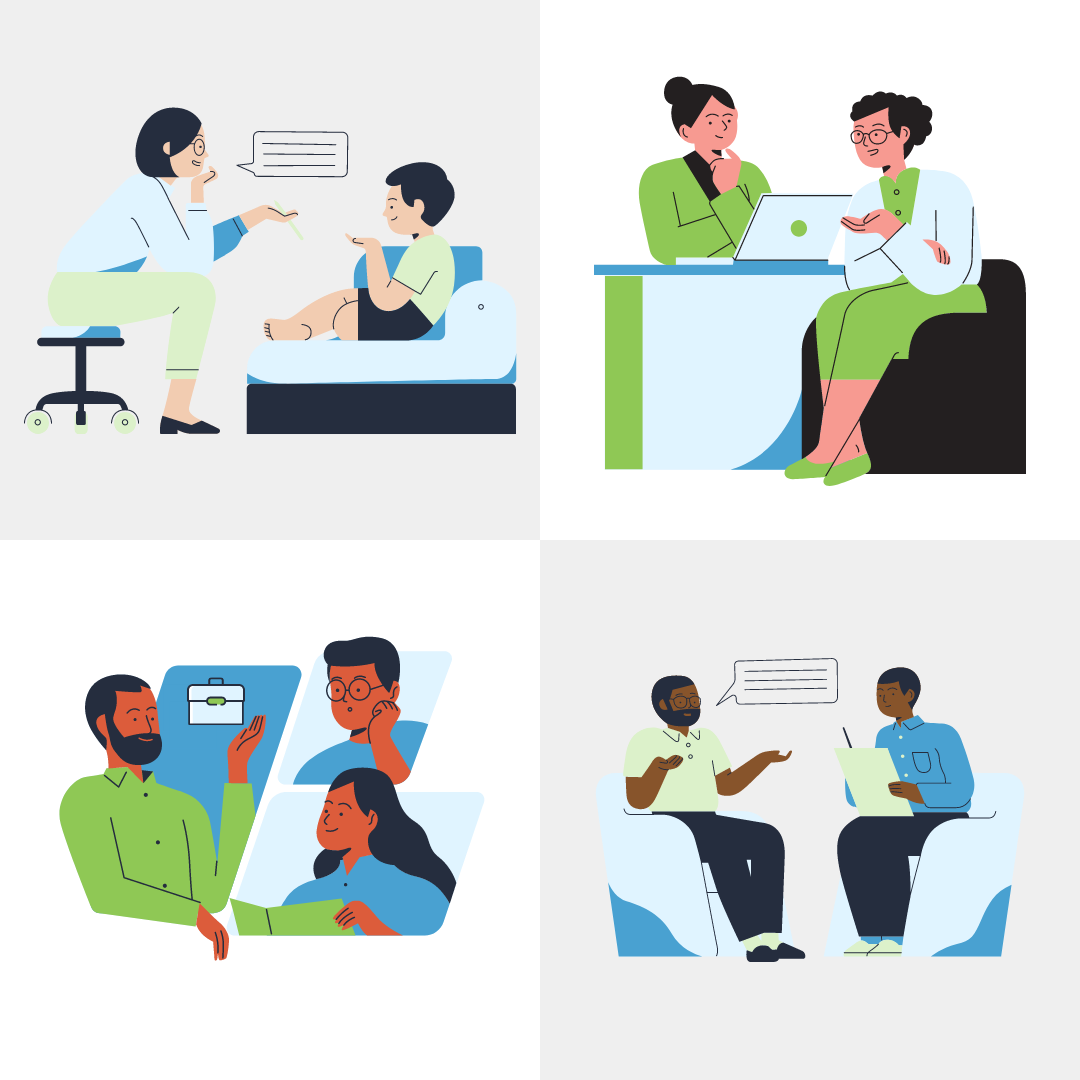1 legal ethical CE Credit Hour on Protected Health Information (PHI)
How to Identify HIPAA Protected Health Information: Finding Your Clients’ Sensitive Information Wherever It Goes
Join Roy Huggins LPC NCC and Liath Dalton as they empower mental health professionals to identify and protect sensitive data.
1 legal ethical CE credit hours
On-Demand Self Study
Protect data wherever it goes
In this presentation, mental health professionals will learn a working understanding of what PHI is, with plenty of specific examples. Learn how to keep client information secured.

Who is this event for?
This course is designed for solo practitioners, group practice leadership and group practice administrative staff members. It is also suitable for practices that consist of 100% in-person, 100% telehealth, or a mixture of in-person and telehealth treatment.
 In-person Practices
In-person Practices
 Hybrid Practices
Hybrid Practices
 Teletherapy Only Practices
Teletherapy Only Practices

I’ve been watching several of your CE programs and, while I’ve always been impressed with your services, I just have to say, your programs are excellently done with production and content and simultaneously warm and accessible. I really appreciate what you do!
Clear Terminology
Determine when information is personally identifying using HIPAA’s list of 18 identifiers
Roles and Responsibilites
Determine when PHI is the responsibility of the learner’s practice under HIPAA
Tools to support
Identify when services and software tools may be handling HIPAA protected health information
Training is Step 2 of the PCT Way.
Course Details
1 CE Credit Hour. Legal-Ethical. Continuing Education Session Replay
Title: How to Identify HIPAA Protected Health Information: Finding Your Clients’ Sensitive Information Wherever It Goes
Authors/Presenters: Roy Huggins, LPC NCC; Liath Dalton
CE Length: 1 CE Credit Hour. Legal-Ethical. Continuing Education Session Replay
Legal-Ethical CE Hours: 1 CE Credit Hour. Legal-Ethical. Continuing Education Session Replay
Educational Objectives:
- Determine when information is personally identifying using HIPAA’s list of 18 identifiers
- Determine when PHI is the responsibility of the learner’s practice under HIPAA
- Identify when services and software tools may be handling HIPAA protected health information
Syllabus:
- What, precisely stated, is “Protected Health Information?”
- PHI as defined under HIPAA
- Examples of “health information.”
- “PHI,” the HIPAA concept vs. “Confidential information,” the professional ethical concept
- Precision in definition
- Boundaries of scope
- PHI as defined under HIPAA
- How does HIPAA determine what is “personally identifying” and what is not?
- HIPAA’s 18 identifiers
- Applying the identifiers to information typically found in mental health practices
- When does “personally identifying health information” become my practice’s PHI, and by extension my/our responsibility under HIPAA?
- “Scope” in security and privacy regulations
- The scope of HIPAA’s various rules
- Concrete examples of the likely edges of HIPAA PHI in mental health practices
- How do I know when PHI is being handled by my devices, service professionals, and cloud services?
- Following information flow
- Which identifiers to look for based on where you’re looking
- Identifiers on smartphones
- Identifiers on cloud services in general
- Identifiers on email and texting services
- Identifiers and service professionals
Meet Our Presenters
Presented by:
Roy Huggins LPC NCC

Roy Huggins, LPC NCC, is a counselor in private practice who also directs Person-Centered Tech. Roy worked as a professional Web developer for 7 years before changing paths and makes it his mission to grow clinicians’ understanding of the Internet and other electronic communications mediums for the future of our practices and our professions.
Roy is an adjunct instructor at the Portland State University Counseling program where he teaches Ethics and is a member of the Zur Institute advisory board. He has acted as a subject matter expert on HIPAA, security, and clinical use of technology for Counseling licensure boards, and both state and national mental health professional organizations. He has co-authored or authored 2 book chapters, and he routinely consults with mental health colleagues on ethical and practical issues surrounding tech in clinical practice. He served for 5 years on the board of the Oregon Mental Health Counselors Association and then the Oregon Counseling Association as the Technology Committee Chair.
He really likes this stuff.

Liath Dalton is PCT’s deputy director and a co-owner. Liath is especially passionate about helping therapists be resourced and supported in navigating the security compliance process and identifying the solutions and processes that meet the particular needs of their practices. Liath’s consultation area of expertise is focused on selecting the right combination of services and tech that not only meet the legal-ethical needs of mental health practices, but also the functionality, efficiency, and cost-effectiveness needs as well.
Program Notices
- US Dept. of Health and Human Services. (2006). HIPAA Administrative Simplification . Washington, DC: Author.
- US Dept. of Health and Human Services. (2013). HIPAA Omnibus Final Rule . Washington, DC: Author.
